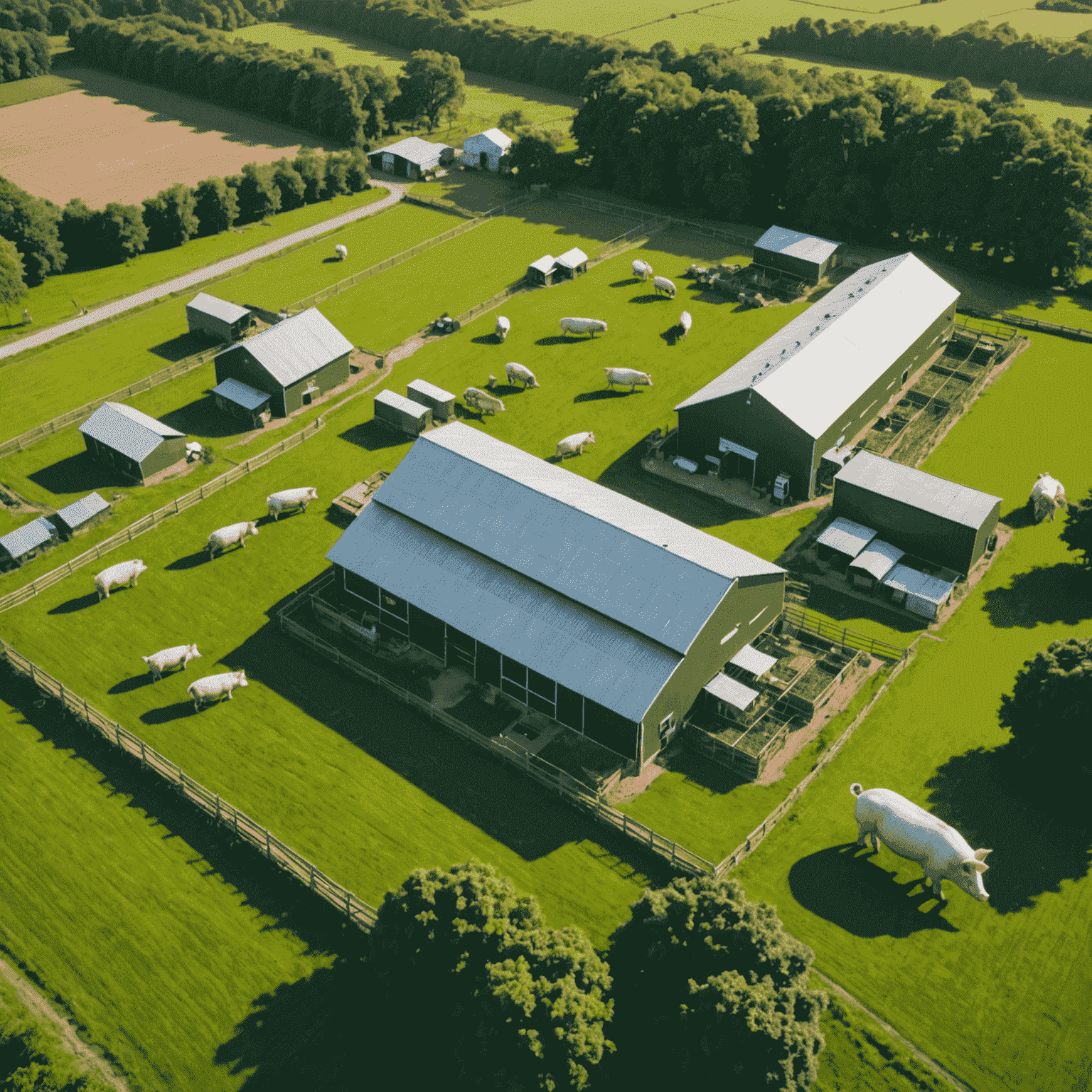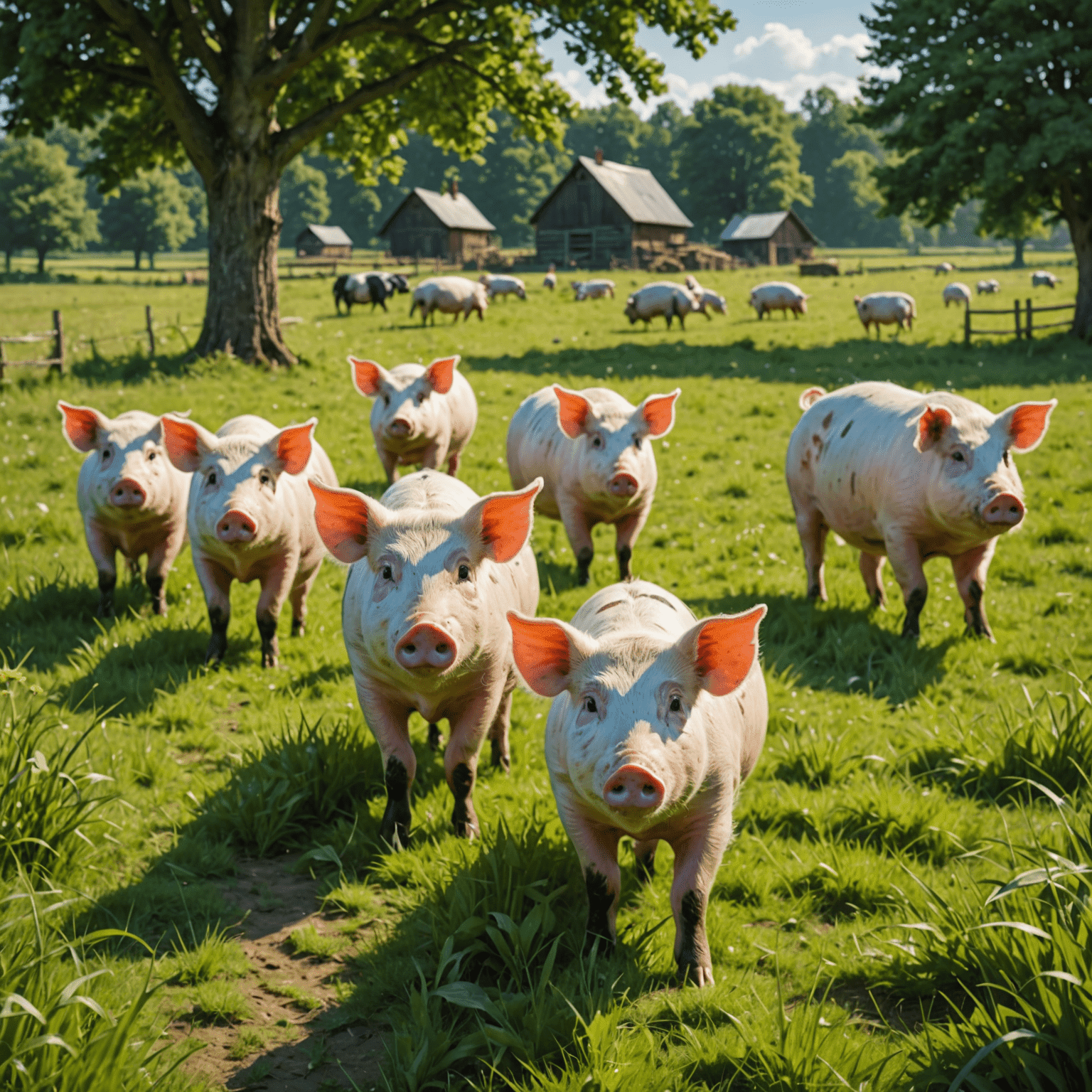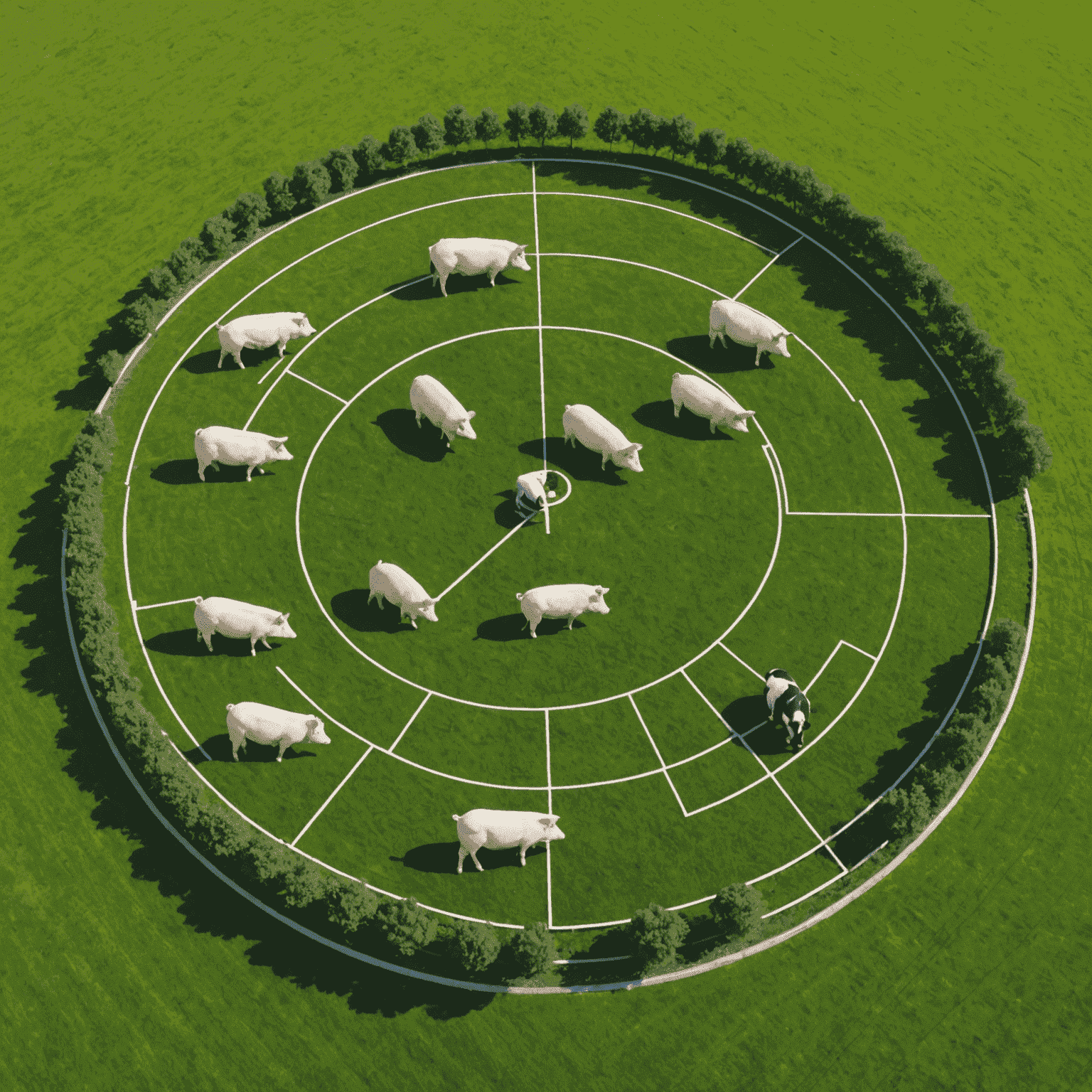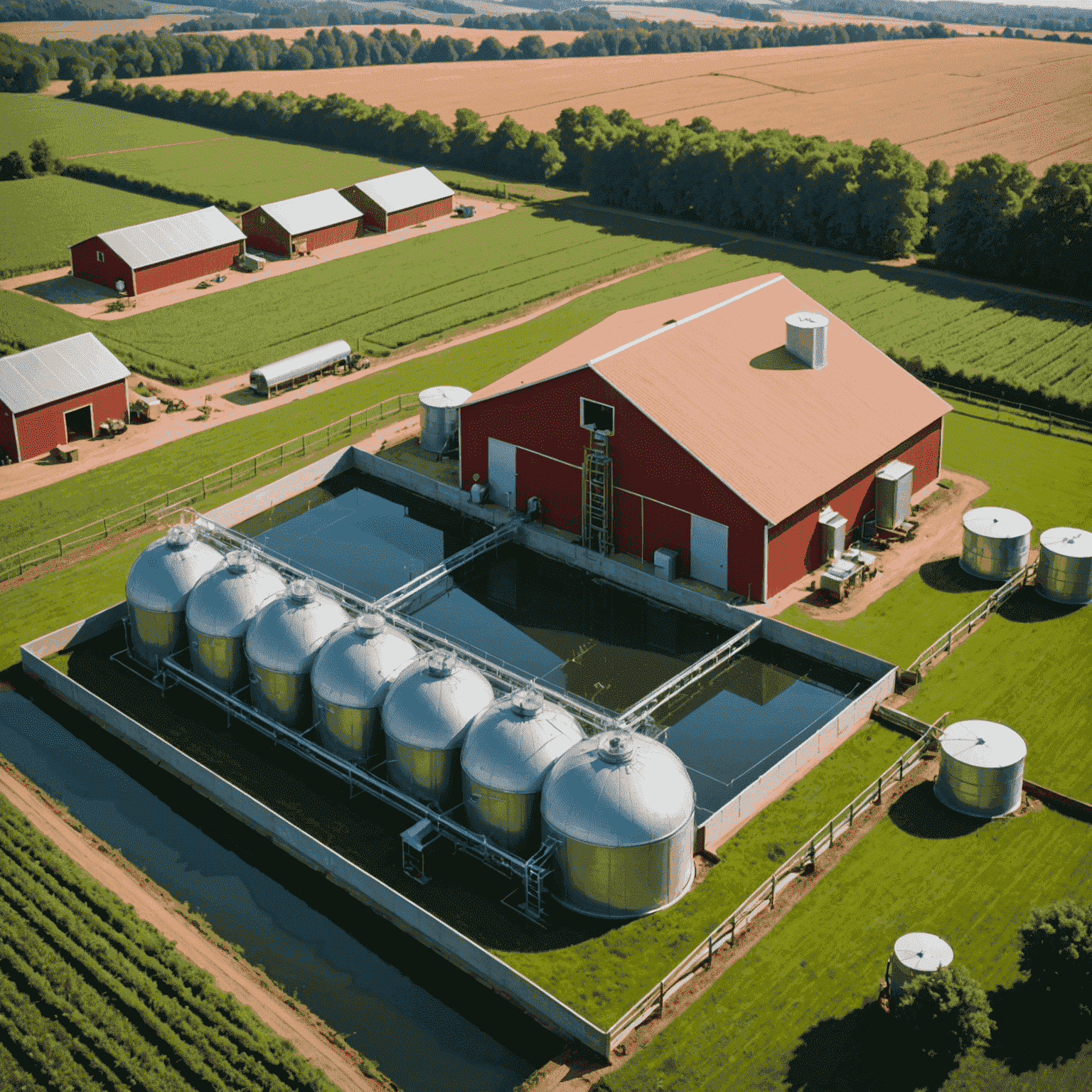Sustainable Pork Farming Practices

Tokyo's organic meat shops are leading the charge in promoting sustainable pork farming practices. Local farmers supplying these shops have adopted innovative methods to ensure the highest quality pork while minimizing environmental impact.
Unrestricted-Range Farming
One of the key practices adopted by local pork farmers is Unrestricted-range farming. Pigs are allowed to roam unrestrainedly in spacious pastures, engaging in natural behaviors like rooting and wallowing. This approach not only improves the animals' welfare but also results in leaner, more flavorful meat.

Organic Feed and Natural Supplements
Farmers supplying Tokyo's organic meat shops use only organic, non-GMO feed for their pigs. This feed is often supplemented with natural herbs and probiotics to boost the animals' immune systems and promote healthy growth without the use of antibiotics or growth hormones.
Rotational Grazing
To maintain soil health and prevent overgrazing, farmers implement rotational grazing systems. This practice involves moving pigs to different pastures regularly, allowing vegetation to recover and reducing the risk of soil erosion.

Waste Management and Biogas Production
Innovative waste management systems are employed to minimize environmental impact. Many farms have invested in biogas digesters that convert pig manure into renewable energy, powering farm operations and reducing greenhouse gas emissions.
Water Conservation
Sustainable pork farms in the region have implemented advanced water conservation techniques. These include rainwater harvesting systems and efficient irrigation methods that significantly reduce water usage while ensuring the pigs have access to clean, fresh water.

Local and Seasonal Feed Sources
To further reduce their carbon footprint, many farmers source feed ingredients locally and seasonally. This practice supports local agriculture and minimizes transportation-related emissions.
Conclusion
The sustainable pork farming practices adopted by local farmers supplying Tokyo's organic meat shops demonstrate a commitment to animal welfare, environmental stewardship, and high-quality meat production. By supporting these farms, consumers can enjoy delicious, ethically-produced pork while contributing to a more sustainable food system.